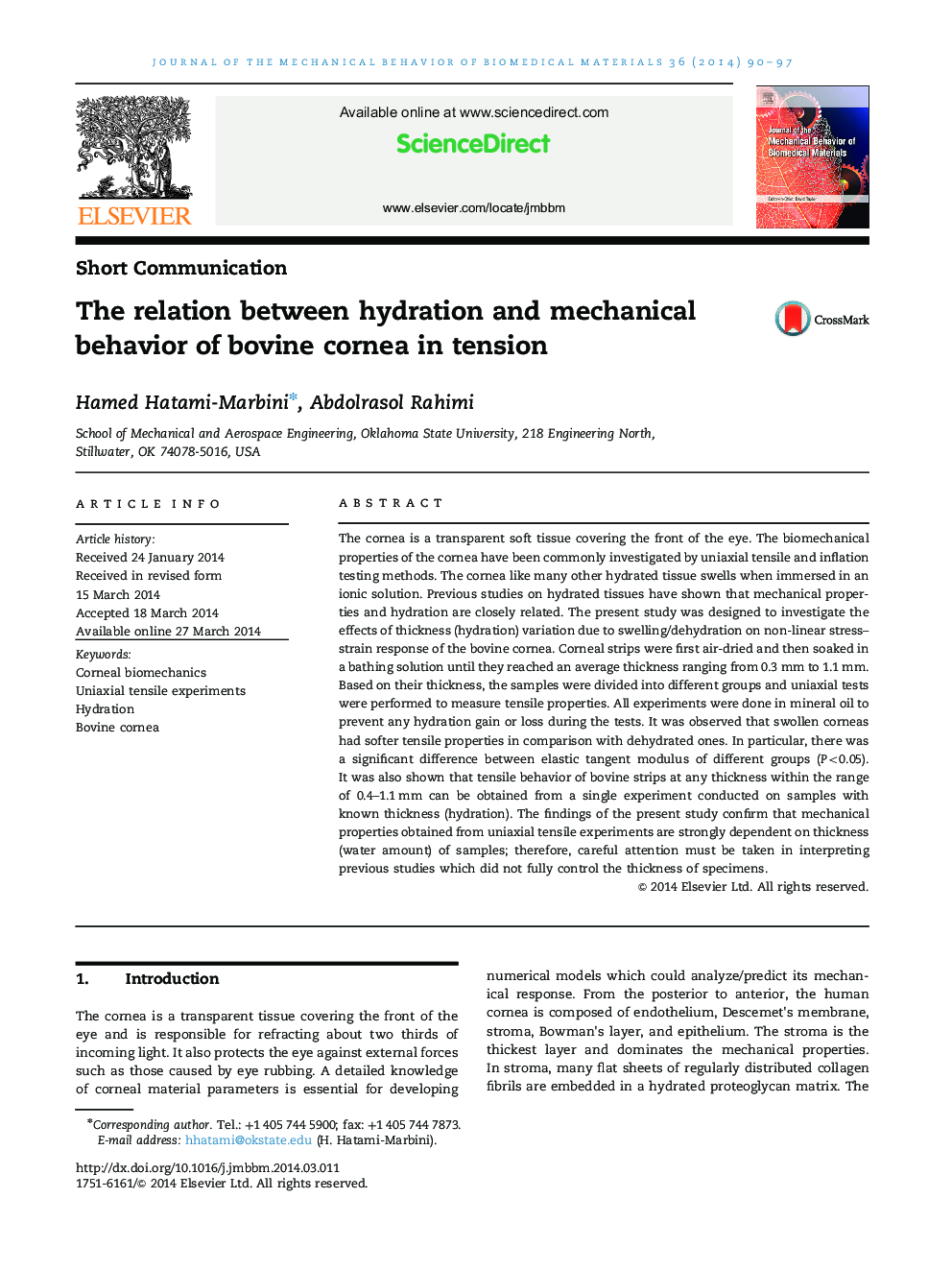| Article ID | Journal | Published Year | Pages | File Type |
|---|---|---|---|---|
| 7208857 | Journal of the Mechanical Behavior of Biomedical Materials | 2014 | 8 Pages |
Abstract
The cornea is a transparent soft tissue covering the front of the eye. The biomechanical properties of the cornea have been commonly investigated by uniaxial tensile and inflation testing methods. The cornea like many other hydrated tissue swells when immersed in an ionic solution. Previous studies on hydrated tissues have shown that mechanical properties and hydration are closely related. The present study was designed to investigate the effects of thickness (hydration) variation due to swelling/dehydration on non-linear stress-strain response of the bovine cornea. Corneal strips were first air-dried and then soaked in a bathing solution until they reached an average thickness ranging from 0.3Â mm to 1.1Â mm. Based on their thickness, the samples were divided into different groups and uniaxial tests were performed to measure tensile properties. All experiments were done in mineral oil to prevent any hydration gain or loss during the tests. It was observed that swollen corneas had softer tensile properties in comparison with dehydrated ones. In particular, there was a significant difference between elastic tangent modulus of different groups (P<0.05). It was also shown that tensile behavior of bovine strips at any thickness within the range of 0.4-1.1Â mm can be obtained from a single experiment conducted on samples with known thickness (hydration). The findings of the present study confirm that mechanical properties obtained from uniaxial tensile experiments are strongly dependent on thickness (water amount) of samples; therefore, careful attention must be taken in interpreting previous studies which did not fully control the thickness of specimens.
Related Topics
Physical Sciences and Engineering
Engineering
Biomedical Engineering
Authors
Hamed Hatami-Marbini, Abdolrasol Rahimi,
